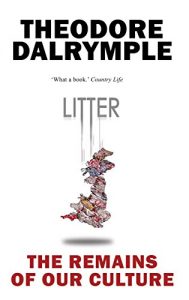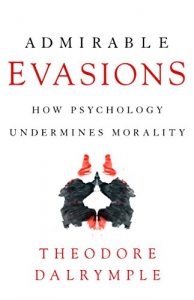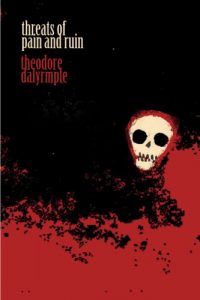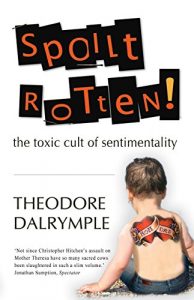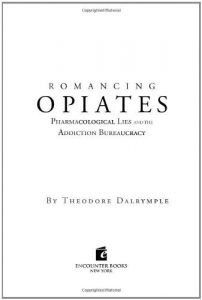As Charles Taylor begins a 50-year sentence for his role in the brutal civil war in Liberia, Theodore Dalrymple’s memoir of a visit to the country, and its capital Monrovia, makes fascinating reading.
Founded in 1822 as a refuge for freed African slaves from America, Liberia is a curiosity which became a catastrophe.
For well over 100 years, it was a civilised and relatively prosperous country under the rule of Americo-Liberians, but it was thrown into chaos in 1980 when Samuel Doe led a revolution of those considering themselves ‘natives’.
The incumbent president was murdered in his bed, and his cabinet ministers paraded naked through the streets of Monrovia before being summarily executed by firing squad on the beach.
Doe – a brutal and incompetent tribalist (also, say some, a cannibal) – was himself overthrown by Charles Taylor in 1990.
Dalrymple arrives in Monrovia the following year, where giggling Liberians show him a videotape of Doe’s torture and murder at the hands of Taylor’s rival, the majestically self-titled Brigadier-General Field-Marshal Prince Y Johnson. In the film, Johnson – now a Liberian senator – calmly sips a Budweiser as the naked Doe’s ears are hacked off. Unsurprisingly, Dalrymple forms the professional opinion that Johnson is a psychopath.
Monrovia was once a peaceful and reasonably ordered city; now, it has been almost completely sacked. Burnt-out cars are everywhere; doors have been chopped up for firewood; rubble lines the streets, with the vandalism forming a systematic attempt to destroy every vestige of the old regime (and, the author speculates, of civilisation itself). The destruction of the university and library, for instance, seems to be little more that the revenge of the ignorant upon the educated. In a local hospital (once the pride of West Africa, now long ruined and abandoned), the professor of surgery’s office has been ransacked, and medical books and papers have been ripped up; in another, infant welfare records have been smeared with faeces. In the wrecked Centennial Hall, the body of a beautiful Steinway grand piano lies on the floor, its legs senselessly sawn off. In a Lutheran church, Dalrymple finds the floor covered in the blood silhouettes of 600 Liberians massacred by Doe’s soldiers.
Dalrymple – who achieves the near-impossible by making a book about such barbarism at times amusing – lays much of the blame for what happened at the feet of Western intellectuals and their African counterparts.
Monrovia Mon Amour is a profoundly moving and interesting book about a country which is little-understood and less visited.
Founded in 1822 as a refuge for freed African slaves from America, Liberia is a curiosity which became a catastrophe.
For well over 100 years, it was a civilised and relatively prosperous country under the rule of Americo-Liberians, but it was thrown into chaos in 1980 when Samuel Doe led a revolution of those considering themselves ‘natives’.
The incumbent president was murdered in his bed, and his cabinet ministers paraded naked through the streets of Monrovia before being summarily executed by firing squad on the beach.
Doe – a brutal and incompetent tribalist (also, say some, a cannibal) – was himself overthrown by Charles Taylor in 1990.
Dalrymple arrives in Monrovia the following year, where giggling Liberians show him a videotape of Doe’s torture and murder at the hands of Taylor’s rival, the majestically self-titled Brigadier-General Field-Marshal Prince Y Johnson. In the film, Johnson – now a Liberian senator – calmly sips a Budweiser as the naked Doe’s ears are hacked off. Unsurprisingly, Dalrymple forms the professional opinion that Johnson is a psychopath.
Monrovia was once a peaceful and reasonably ordered city; now, it has been almost completely sacked. Burnt-out cars are everywhere; doors have been chopped up for firewood; rubble lines the streets, with the vandalism forming a systematic attempt to destroy every vestige of the old regime (and, the author speculates, of civilisation itself). The destruction of the university and library, for instance, seems to be little more that the revenge of the ignorant upon the educated. In a local hospital (once the pride of West Africa, now long ruined and abandoned), the professor of surgery’s office has been ransacked, and medical books and papers have been ripped up; in another, infant welfare records have been smeared with faeces. In the wrecked Centennial Hall, the body of a beautiful Steinway grand piano lies on the floor, its legs senselessly sawn off. In a Lutheran church, Dalrymple finds the floor covered in the blood silhouettes of 600 Liberians massacred by Doe’s soldiers.
Dalrymple – who achieves the near-impossible by making a book about such barbarism at times amusing – lays much of the blame for what happened at the feet of Western intellectuals and their African counterparts.
Monrovia Mon Amour is a profoundly moving and interesting book about a country which is little-understood and less visited.

